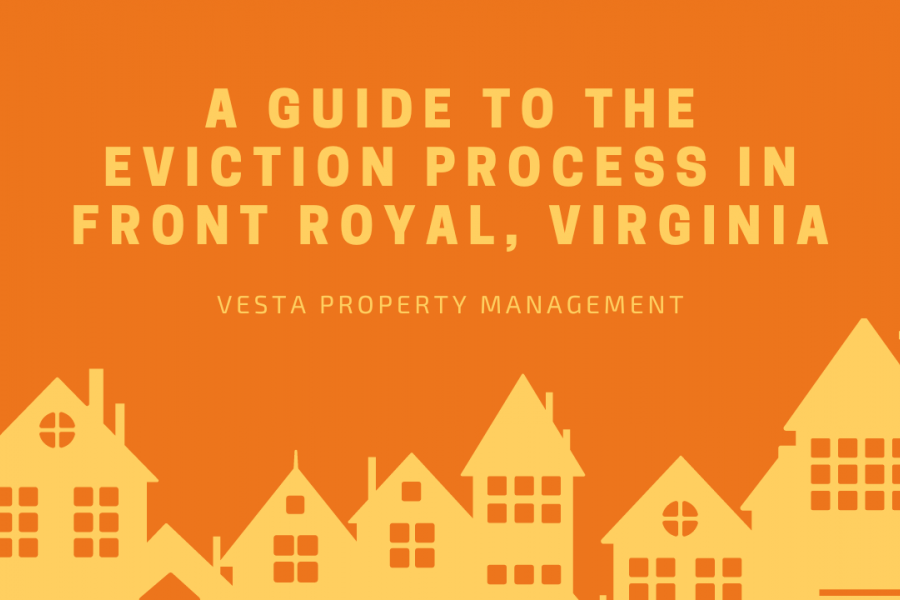
Virginia is one of the most lucrative real estate markets for a landlord in the United States. With a population of over 8.6 million, the Virginia real estate market is a great location for investors. However, owning a rental unit and being a landlord can be overwhelming, especially if you have to deal with problematic tenants.
To avoid a potential bad tenant, owners should have a strict tenant screening process and written lease or rental agreement for their rental property. Every great landlord knows thorough background checks should be performed to ensure that the person is financially able to pay rent in a timely and regular manner.
Whether this is a month to month lease agreement or long term rental period, it's important for a landlord to have set rules for your rental premises to be able to evict a tenant if they cause a lease violation.
When screening tenants, it’s for a landlord important to choose those who will take care of the rental and uphold their duties and responsibilities under the rental agreement. Screening tenants is the best way to avoid a Virginia eviction that could result in a eviction lawsuit in the general district court.
However, there are times when tenants fail in their duties and responsibilities. When this happens, owners will sometimes be left with no other option but to evict the tenant. As a landlord, you should be aware of the proper Virginia eviction process to ensure that you remain in compliance with Virginia landlord tenant law and avoid any legal problems or an eviction lawsuit.
How Long Does an Eviction in Virginia Take?
Evicting a tenant in the state of Virginia can take between two and four months. The length of the evictions process in Virginia varies depending on the type of eviction. Also, this timeframe may take longer if the tenant requests a jury trial.

Written Notice for Lease Termination with Legal Cause
Under Virginia eviction laws, owners are prohibited from evicting tenants without any legal reason. Here are the legal grounds for evicting a tenant from your property in Virginia:
- Not paying rent.
- End of agreement or no written lease agreement.
- Violation of any contract provisions.
- Being involved in any illegal drug activity.
- Unauthorized pet.
Owners may evict a tenant if they fail to notice to pay rent on time. In Virginia, rent is considered late the day after its due date. Owners must provide five days’ notice to pay or vacate the premises. After five days since the eviction notice, the landlord can move forward with the eviction process if the tenant remains at the premises without paying the amount due.
If a Virginia tenant remains at the rental with no agremeent or even after the tenancy has ended, the landlord must terminate the agreement by serving a 30-day notice to move out for people on a month-to-month tenancy. After the written notice expires, the landlord can proceed with the eviction if the tenant refuses to vacate the premises.
A tenant may also be evicted if they violate any provisions in the rental agreement or if they did not comply with the Virginia Residential Landlord-Tenant Act. If the violation can be fixed and the tenant makes a request to resolce the issue, the landlord should give the tenant a 30-day notice to fix the issue within 21 days.

For violations that cannot be fixed, the landlord must give a 30-day notice to move out. If the tenant does not comply with the notice, the landlord can start the evictions process.
Owners can also evict renters who are involved in unlawful activities. Owners are not mandated to serve renters with prior written notice. If the reason for eviction is due to illegal activity, owners may immediately file an eviction case. Illegal activities include committing a criminal or willful act, being involved in illegal drugs, and any acts of violence that affect the health and safety of another individual.
Serving a Tenant with an Eviction Notice in Virginia
Without a cause, procedures for terminating a lease in Virginia depend on the length of the tenancy. If it’s a monthly lease, the Virginia Residential Landlord-Tenant Act requires the landlord to give the tenant a 30-day notice to end their tenancy. If the tenant rents on a weekly basis, Virginia landlords must serve a seven-day termination notice to end the tenancy.
Only full payments of all amounts, damages, money judgments, and court costs owed to the landlord can stop an eviction, as long as they are paid at least 48 hours before the scheduled eviction.
Here are the required eviction notices for the following causes:
- Nonpayment of rent: Five-day notice to pay the unpaid rent or vacate the premises.
- No lease/end of lease: Seven-day notice period to quit weekly rent, and a 30-day notice to quit for monthly rent.
- Lease violations: Thirty-day notice to cure or vacate.
- Illegal activity: No notice is required.
Summons for Unlawful Detainer
In Virginia rental laws, a Summons for Unlawful Detainer is a legal document issued by the court when a landlord seeks to evict a tenant for reasons such as nonpayment of rent or lease violations. This Summons for Unlawful Detainer is typically filed after the landlord has given the required notice. Once the landlord files an unlawful detainer lawsuit in the General District Court, the tenant receives a court date where they can contest the unlawful detainer lawsuit.
Tenant Eviction Defenses in Virginia
The defense is a reason why you (the petitioner) shouldn’t win the unlawful detainer lawsuit. A tenant may claim:
- The landlord tried to forcibly remove the tenant by changing locks, shutting off utilities, and/or removing the tenant’s belongings.
- The eviction is retaliatory in nature, in response to a tenant who is exercising a legally protected right against a landlord.

Attending a Court Hearing
In Virginia, the court eviction hearing must be held within 21 to 30 days after filing the Summons for Unlawful Detainer in the general district court. If the tenant fails to attend the court date, usually the judge rules in favor of the landlord and a writ of possession is issued. But if either the landlord or the tenant requests a jury trial after the court order, the proper eviction procedures will take longer.
Writ of Eviction
A Writ of Possession is a court order that grants a landlord the right to immediate possession of a rental property after winning an Unlawful Detainer (eviction) case. It is the tenant’s final notice to vacate the rental unit and the landlord regains posession.
Once the court issues a judgment for possession, a writ of eviction will be issued within 10 days, which authorizes the Deputy Sheriff to remove the tenant and return the property to the landlord. The sheriff’s office will schedule an eviction date and provide the tenant with notice, typically allowing a few days to vacate voluntarily. If the tenant does not leave by the deadline, the Deputy Sheriff will oversee the removal of the tenant and their belongings.
If the landlord fails to request the writ of eviction within 180 days, they will have to begin the eviction process again.
The Eviction
Under the Virginia eviction law, the sheriff or constable must deliver the writ of eviction within 15 to 30 days of receiving the same. The writ must be delivered to the tenant or posted on the rental if the tenant is not in the rental unit upon delivery.
The tenant will have 72 hours to vacate the rental and allow landlord posession. If the tenant chooses to remain in the premises after 72 hours, the sheriff or constable will return to the rental unit to forcibly remove them.

Conclusion
As a landlord, knowing the legal procedure for an eviction is essential to ensure that you are doing everything in accordance with Virginia law. If you are still in doubt and are not comfortable doing this process on your own, it’s best to seek advice from a professional manager who is knowledgeable about the law.
For help with everything from security deposits to marketing, the management team at Vesta can take care of all of your rental property needs. Contact us today and we’ll be happy to assist you!
Disclaimer: This blog should not be used as a substitute for legal advice from a licensed attorney in your state. Laws change, and this post might not be updated at the time of your reading. Please contact us for any questions you have in regard to this content or any other aspect of your management needs.